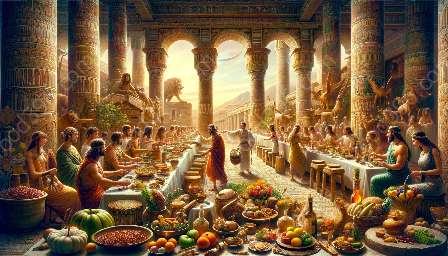Ancient Chinese cuisine is a rich tapestry of culinary traditions, flavors, and cultural significance that have evolved over thousands of years. From the early dynasties to the Silk Road influences, Chinese food culture has been shaped by diverse regional ingredients, cooking methods, and social customs. Explore the fascinating world of ancient Chinese cuisine, its historical roots, and its enduring impact on modern gastronomy.
Ancient Chinese Food Culture and History
Ancient Chinese food culture is deeply rooted in tradition, spirituality, and the philosophy of balance and harmony. The history of Chinese cuisine can be traced back to the Neolithic age, with early agricultural practices and the cultivation of rice, wheat, and millet. As dynastic rule and cultural exchange flourished, so did the diversity and complexity of Chinese culinary traditions.
Ingredients and Flavor Profiles
Ancient Chinese cuisine is renowned for its diverse and flavorful ingredients, including rice, noodles, soybeans, and a wide array of vegetables, fruits, and meats. The harmonious blending of flavors, such as sweet, sour, bitter, and umami, reflects the Chinese emphasis on balance in food. Traditional Chinese herbs and spices, such as ginger, garlic, and Sichuan peppercorns, contribute to the unique and enduring taste of Chinese dishes.
Cooking Methods and Culinary Techniques
The cooking methods employed in ancient Chinese cuisine are as diverse as the ingredients themselves. From stir-frying and steaming to braising and deep-frying, each technique has been finely honed to preserve the natural flavors and textures of the ingredients. The ancient Chinese mastered the art of combining flavors, textures, and colors to create visually stunning and tantalizing dishes.
Ancient Food Cultures
Chinese culinary history is interwoven with the broader tapestry of ancient food cultures around the world. The Silk Road, an ancient network of trade routes, facilitated the exchange of goods, ideas, and food between China, Central Asia, and the Mediterranean, leading to the fusion of culinary traditions and the introduction of new ingredients and spices to Chinese cuisine.
Cultural Significance
Ancient Chinese cuisine holds deep cultural significance, playing a central role in traditional ceremonies, festivals, and social gatherings. The cultural customs of sharing communal meals and honoring ancestors through food offerings continue to be cherished practices in Chinese society.
Legacy and Modern Influences
The enduring legacy of ancient Chinese cuisine is evident in modern Chinese gastronomy, from the global popularity of regional dishes like Peking duck and dim sum to the fusion of traditional flavors with contemporary culinary trends. Chinese food culture retains its historical roots while continually adapting to new influences, making it a vibrant living tradition.

